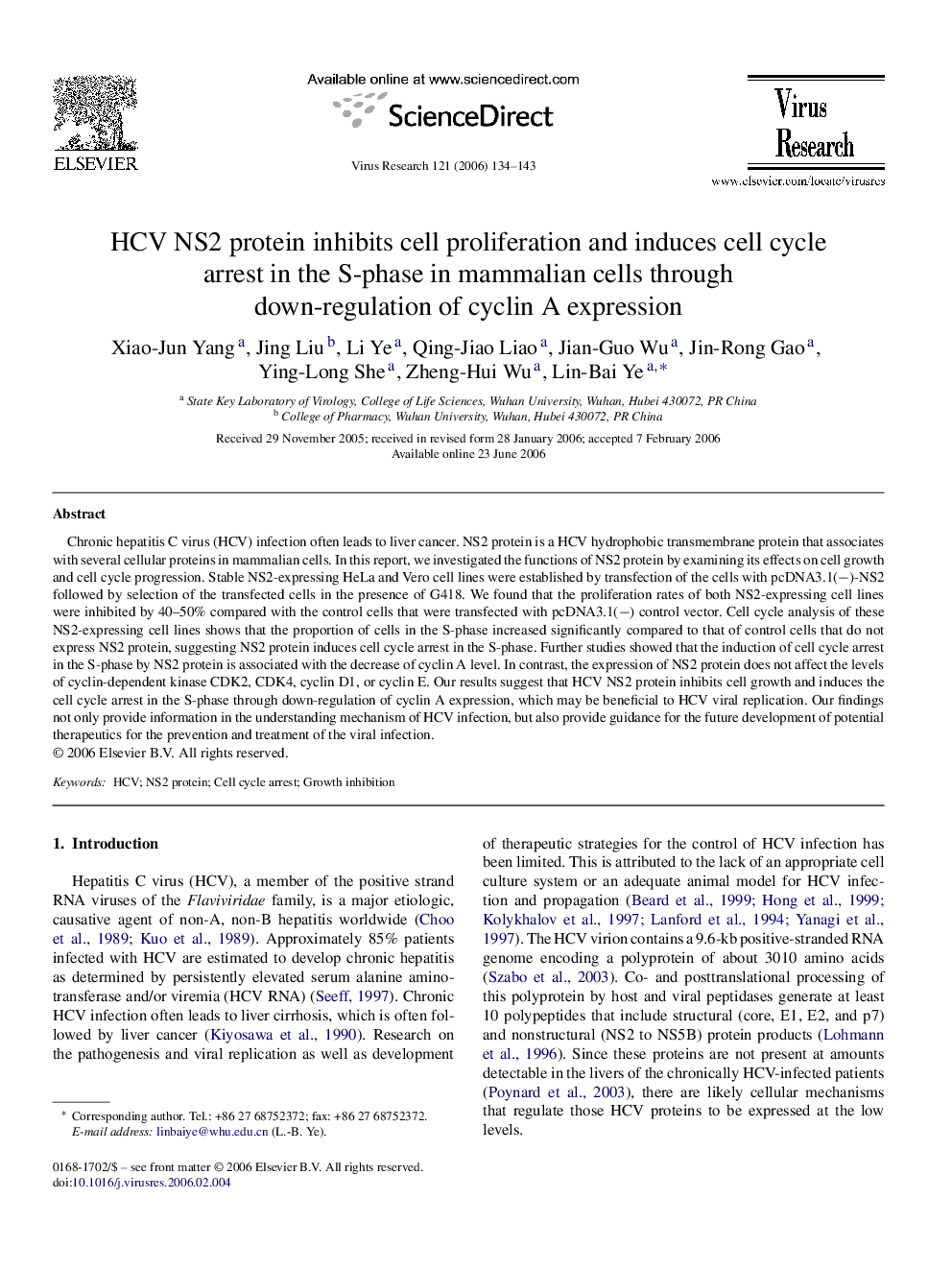| Article ID | Journal | Published Year | Pages | File Type |
|---|---|---|---|---|
| 3431055 | Virus Research | 2006 | 10 Pages |
Chronic hepatitis C virus (HCV) infection often leads to liver cancer. NS2 protein is a HCV hydrophobic transmembrane protein that associates with several cellular proteins in mammalian cells. In this report, we investigated the functions of NS2 protein by examining its effects on cell growth and cell cycle progression. Stable NS2-expressing HeLa and Vero cell lines were established by transfection of the cells with pcDNA3.1(−)-NS2 followed by selection of the transfected cells in the presence of G418. We found that the proliferation rates of both NS2-expressing cell lines were inhibited by 40–50% compared with the control cells that were transfected with pcDNA3.1(−) control vector. Cell cycle analysis of these NS2-expressing cell lines shows that the proportion of cells in the S-phase increased significantly compared to that of control cells that do not express NS2 protein, suggesting NS2 protein induces cell cycle arrest in the S-phase. Further studies showed that the induction of cell cycle arrest in the S-phase by NS2 protein is associated with the decrease of cyclin A level. In contrast, the expression of NS2 protein does not affect the levels of cyclin-dependent kinase CDK2, CDK4, cyclin D1, or cyclin E. Our results suggest that HCV NS2 protein inhibits cell growth and induces the cell cycle arrest in the S-phase through down-regulation of cyclin A expression, which may be beneficial to HCV viral replication. Our findings not only provide information in the understanding mechanism of HCV infection, but also provide guidance for the future development of potential therapeutics for the prevention and treatment of the viral infection.
